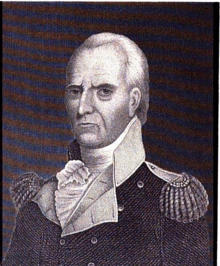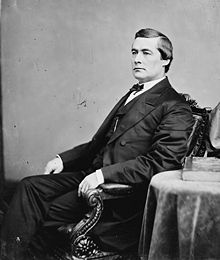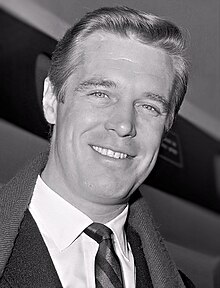May 8 is the 128th day of the year (129th in leap years) in the Gregorian calendar. There are 237 days remaining until the end of the year.
Holidays
- Ace Day Of Visibility
- Christian feast day:
- Earliest day on which Father’s Day can fall, while May 14 is the latest; celebrated on the second Sunday of May. (Romania)
- Earliest day on which Mother’s Day can fall, while May 14 is the latest; celebrated on the second Sunday of May. (United States and others)
- Earliest day on which State Flag and State Emblem Day can fall, while May 14 is the latest; celebrated on the second Sunday of May. (Belarus)
- Earliest day on which World Fair Trade Day can fall, while May 14 is the latest; celebrated on the second Sunday of May. (International)
- Miguel Hidalgo’s birthday (Mexico)
- Parents’ Day (South Korea)
- Time of Remembrance and Reconciliation for Those Who Lost Their Lives during the Second World War, continues to May 9 (International)
- Truman Day (Missouri)
- Victory in Europe Day, and its related observances (Europe):
- White Lotus Day (Theosophy)
- World Red Cross and Red Crescent Day (International)
History
In 453 BC, Spring and Autumn period: The house of Zhao defeats the house of Zhi, ending the Battle of Jinyang, a military conflict between the elite families of the State of Jin.
In 413, Emperor Honorius signs an edict providing tax relief for the Italian provinces Tuscia, Campania, Picenum, Samnium, Apulia, Lucania and Calabria, which were plundered by the Visigoths.
In 589, Reccared I summons the Third Council of Toledo.
In 1450, Jack Cade‘s Rebellion: Kentishmen revolt against King Henry VI.
In 1516, Trần Cảo Rebellion: A group of imperial guards, led by Trịnh Duy Sản, murdered Emperor Lê Tương Dực and fled, leaving the capital Thăng Long undefended.
In 1541, Hernando de Soto reaches the Mississippi River and names it Río de Espíritu Santo.
In 1788, The French Parlement is suspended to be replaced by the creation of forty-seven new courts.
In 1794, Branded a traitor during the Reign of Terror by revolutionists, French chemist Antoine Lavoisier, who was also a tax collector with the Ferme Générale, is tried, convicted, and guillotined all on the same day in Paris.
In 1821, Greek War of Independence: The Greeks defeat the Turks at the Battle of Gravia Inn.
In 1822, John Stark, American general (b. 1728) dies. He was a New Hampshire native who served as a major general in the Continental Army during the American Revolution. He became widely known as the “Hero of Bennington” for his exemplary service at the Battle of Bennington in 1777. On April 28, 1752, while on a hunting and trapping trip along the Baker River, a tributary of the Pemigewasset River, he was captured by Abenaki warriors and brought back to Canada but not before warning his brother William to paddle away in his canoe, though David Stinson was killed. While a prisoner of the Abenaki, he and his fellow prisoner Amos Eastman were made to run a gauntlet of warriors armed with sticks. Stark grabbed the stick from the first warrior’s hands and proceeded to attack him, taking the rest of the warriors by surprise. The chief was so impressed by this heroic act that Stark was adopted into the tribe, where he spent the winter.
In 1842, A train derails and catches fire in Paris, killing between 52 and 200 people.
In 1846, Mexican–American War: The Battle of Palo Alto – Zachary Taylor defeats a Mexican force north of the Rio Grande in the first major battle of the war.
In 1861, American Civil War: Richmond, Virginia is named the capital of the Confederate States of America.

In 1876, The Cornerstone of the Confederate Monument on northwest corner of Madison County Court Square was laid.
In 1877, At Gilmore’s Gardens in New York City, the first Westminster Kennel Club Dog Show opens.
In 1886, Pharmacist John Pemberton first sells a carbonated beverage named “Coca-Cola” as a patent medicine.
In 1898, The first games of the Italian football league system are played.
In 1899, The Irish Literary Theatre in Dublin produced its first play.
In 1901, The Australian Labour Party is established.
In 1902, In Martinique, Mount Pelée erupts, destroying the town of Saint-Pierre and killing over 30,000 people. Only a handful of residents survive the blast.
In 1907, Edmund G. Ross, American politician, 13th Governor of New Mexico Territory (b. 1826) dies. He was a politician who represented Kansas after the American Civil War and was later governor of the New Mexico Territory. His vote against convicting President Andrew Johnson of “high crimes and misdemeanors” allowed Johnson to stay in office by the margin of one vote. As the seventh of seven Republican U.S. Senators to break with his party, Ross proved to be the person whose decision would result in conviction or acquittal. When he chose the latter, the vote of 35–19 in favor of Johnson’s conviction failed to reach the required two-thirds vote. Ross lost his bid for re-election two years later.
Ross was born in Ashland, Ohio, and attended high school in Sandusky, Ohio. He worked in the newspaper business, first in Sandusky, Ohio, then in Milwaukee, Wisconsin and Topeka, Kansas. After the suicide of James H. Lane in 1866, Ross was appointed and then elected to the United States Senate as a member of the Republican Party. He became a Democrat in 1872.
He was a Union army veteran and hero. A captain in the Eleventh Kansas Infantry, and later when the regiment became mounted cavalry, Ross had two horses shot out from under him during the skirmishing before the Battle of Westport.
Edmund G. Ross is one of eight U.S. Senators featured in Profiles in Courage, the 1956 Pulitzer Prize-winning history co-written by then-Senator John F. Kennedy and Theodore Sorensen in commemoration of past acts of political courage in Congress. But this volume makes significant errors in its coverage of Ross.
In 1912, Paramount Pictures is founded.
In 1919, Edward George Honey proposes the idea of a moment of silence to commemorate the Armistice of World War I.
In 1924, The Klaipėda Convention is signed formally incorporating Klaipėda Region (Memel Territory) into Lithuania.
In 1927, Attempting to make the first non-stop transatlantic flight from Paris to New York, French war heroes Charles Nungesser and François Coli disappear after taking off aboard The White Bird biplane.
In 1933, Mohandas Gandhi begins a 21-day fast of self-purification and launched a one-year campaign to help the Harijan movement.
In 1941, The German Luftwaffe launches a bombing raid on Nottingham and Derby
In 1942, World War II: The Battle of the Coral Sea comes to an end with Imperial Japanese Navy aircraft carrier aircraft attacking and sinking the United States Navy aircraft carrier USS Lexington. The battle marks the first time in the naval history that two enemy fleets fight without visual contact between warring ships.
In 1942, World War II: Gunners of the Ceylon Garrison Artillery on Horsburgh Island in the Cocos Islands rebel in the Cocos Islands Mutiny. Their mutiny is crushed and three of them are executed, the only British Commonwealth soldiers to be executed for mutiny during the Second World War.
In 1945, Hundreds of Algerian civilians are killed by French Army soldiers in the Sétif massacre.
In 1945, World War II: V-E Day, combat ends in Europe. German forces agree in Reims, France, to an unconditional surrender.
In 1945, End of the Prague uprising, celebrated now as a national holiday in the Czech Republic.
In 1945, The Halifax Riot starts when thousands of civilians and servicemen rampage through Halifax.
In 1946, Estonian school girls Aili Jõgi and Ageeda Paavel blow up the Soviet memorial which stood in front of the Bronze Soldier in Tallinn.
In 1962, The Rabindra Bharati University, a prominent University in India, was founded.
In 1963, South Vietnamese soldiers of Catholic President Ngo Dinh Diem open fire on Buddhists defying a ban on the flying of the Buddhist flag on Vesak, killing nine and sparking the Buddhist crisis.
In 1966, A plane crash at Connellsville, Pennsylvania kills Pennsylvania Attorney General, Walter E. Alessandroni, his wife, and other state officials.
In 1967, The Philippine province of Davao is split into three: Davao del Norte, Davao del Sur, and Davao Oriental.
In 1970, The Hard Hat Riot occurs in the Wall Street area of New York City as blue-collar construction workers clash with demonstrators protesting the Vietnam War.
In 1972, Vietnam War – U.S. President Richard Nixon announces his order to place mines in major North Vietnamese ports in order to stem the flow of weapons and other goods to that nation.
In 1972, Four Black September terrorists hijack Sabena Flight 571. Israeli Sayeret Matkal commandos recapture the plane the following day.
In 1973, A 71-day standoff between federal authorities and the American Indian Movement members occupying the Pine Ridge Reservation at Wounded Knee, South Dakota ends with the surrender of the militants.
In 1976, The rollercoaster Revolution, the first steel coaster with a vertical loop, opens at Six Flags Magic Mountain.
In 1978, The first ascent of Mount Everest without supplemental oxygen, by Reinhold Messner and Peter Habeler.
In 1980, The World Health Organization confirms the eradication of smallpox.
In 1984, The Soviet Union announces that it will boycott the 1984 Summer Olympics in Los Angeles.
In 1984, Corporal Denis Lortie enters the Quebec National Assembly and opens fire, killing three and wounding 13. René Jalbert, Sergeant-at-Arms of the assembly, succeeds in calming him, for which he will later receive the Cross of Valour.
In 1984, The Thames Barrier is officially opened.
In 1987, The Loughgall ambush: The SAS kills eight Provisional Irish Republican Army volunteers and a civilian during an ambush in Loughgall, Northern Ireland.
In 1988, A fire at Illinois Bell‘s Hinsdale Central Office triggers an extended 1AESS network outage once considered the “worst telecommunications disaster in US telephone industry history”.
In 1994, George Peppard, American actor and producer (b. 1928) dies. He was an American film and television actor. Peppard secured a major role when he starred alongside Audrey Hepburn in Breakfast at Tiffany’s (1961), portrayed a character based on Howard Hughes in The Carpetbaggers (1964), and played the title role of millionaire insurance investigator and sleuth Thomas Banacek in the early-1970s television series Banacek. He played Col. John “Hannibal” Smith, the cigar-smoking leader of a renegade commando squad, in the hit 1980s television show The A-Team. Peppard overcame a serious alcohol problem in 1978, and subsequently became heavily involved in helping other alcoholics. He had smoked three packs of cigarettes a day for most of his life until he quit after being diagnosed with lung cancer in 1992.
In 1997, A China Southern Airlines Flight 3456 crashes on approach into Bao’an International Airport, killing 35 people.

In 2008, Eddy Arnold, American singer-songwriter, guitarist, and actor (b. 1918) dies at the age of 89. He was an American country music singer who performed for six decades. He was a so-called Nashville sound (country/popular music) innovator of the late 1950s, and scored 147 songs on the Billboard country music charts, second only to George Jones. He sold more than 85 million records. A member of the Grand Ole Opry (beginning 1943) and the Country Music Hall of Fame (beginning 1966), Arnold ranked 22nd on Country Music Television’s 2003 list of “The 40 Greatest Men of Country Music.” Arnold was born on May 15, 1918 on a farm near Henderson, Tennessee. His father, a sharecropper, played the fiddle, while his mother played guitar. As a boy Arnold helped on the farm, which later gained him his nickname—the Tennessee Plowboy. Arnold attended Pinson High School in Pinson, Tennessee, where he played guitar for school functions and events. He quit before graduation to help with the farm work, but continued performing, often arriving on a mule with his guitar hung on his back. Arnold also worked part-time as an assistant at a mortuary.
In 1934, at age 16, Arnold debuted musically on WTJS-AM in Jackson, Tennessee and obtained a job there during 1937. He performed at local nightclubs and was a permanent performer for the station. During 1938, he was hired by WMPS-AM in Memphis, Tennessee, where he was one of its most popular performers. He soon quit for KWK-AM in St. Louis, Missouri, followed by a brief stint at WHAS-AM in Louisville, Kentucky.
He performed for WSM-AM on the Grand Ole Opry during 1943 as a solo artist. In 1944, Arnold signed a contract with RCA Victor, with manager Colonel Tom Parker, who later managed Elvis Presley. Arnold’s first single was little noticed, but the next, “Each Minute Seems a Million Years”, scored No. 5 on the country charts during 1945. Its success began a decade of unprecedented chart performance; Arnold’s next 57 singles all scored the Top Ten, including 19 number one scoring successes.
I met him in the early sixties for the first time. He was an absolute charm to be around.
In 2008, Tennessee Gov. Bredesen announced his plans to balance the state budget shortfall. Bredesen’s plan included cutting 2,000 jobs, cuts to education disbursements through BEP 2.0 and Bredesen’s Pre-K program. At a news conference in Nashville, he said April tax collections showed the largest drop since records began to be kept in 1961. Bredesen says he hopes to accomplish the cuts through voluntary retirement offers, but says the layoffs may be necessary if enough employees are not cut from the payroll. Lt. Gov. Ron Ramsey praised Bredesen’s approach to balancing the budget and called the economic situation “tough times for the state.”
In 2008, The Toll Road Goes on Despite Commission Rejection — TDOT says it still plans to proceed with an initiative to investigate installing a toll road along the so-called Orange Route in Knoxville, despite the Knox Co. Commission voting not to recommend toll roads in the county. TDOT had previously gone on record saying if they don’t have local support, it won’t go forward. However, Cole now says TDOT will hear out the Knoxville Regional Transportation Planning Organization, a group that previously opted to authorize the study of a toll road along the Orange Route.
In 2013, Chickens within Chattanooga city limits will have to continue living renegade lives, as City Council members voted Tuesday to defer an ordinance that would have granted them legal status inside city lines.
In 2013, Gov. Bill Haslam asked the Tennessee’s congressmen to vote for the internet sales tax bill, reports Richard Locker. The bill faces a much tougher vote in the Republican-controlled House of Representatives than it did in passing the Democrat-controlled Senate on Monday.
Speaking to reporters after a book discussion at the small, independent Parnassus Books store (in Nashville), the governor said he’s already had conversations with some of the Tennessee House delegation and plans more. “I do think it’s critical for our state. We’re a sales tax driven state. We have folks — this bookstore — that are providing a product and collecting sales tax and other folks who are providing the same product and not collecting sales tax. And it’s not a new tax; it’s a tax that’s is owed right now but that people aren’t paying.”
In 2014, The House of Representatives voted to hold former Internal Revenue Service official Lois Lerner in contempt over her handling of a hearing on the agency’s targeting of conservative groups from 2010 to 2013. In May, Lerner invoked her Fifth Amendment right against self-incrimination during the hearing, but Republicans said she waived the right to remain silent by making an opening statement first. She could face a year in jail and a $100,000 fine. [National Journal]




